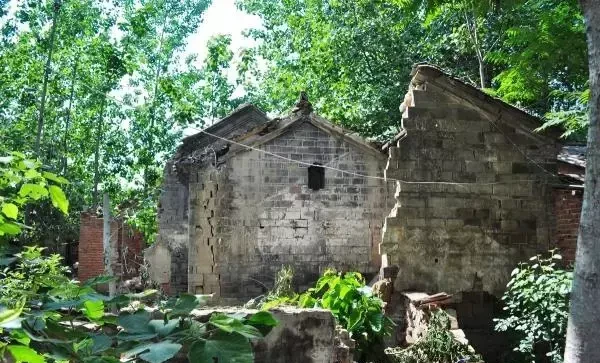More than 300 years ago, In Guangshan County, Henan Province, there was a scholar who devoted his life to the study of "Zhou Yi" and the official ZhiliBu Zuo Shilang (in charge of national ceremonies, imperial examinations, and school affairs), and he was Hu Xu, an old minister who had gone through the three dynasties of The Kangxi, Yongzheng, and Qianlong dynasties of the Qing Dynasty.
Hu Xu (胡煦), also spelled Cangxiao (沧晓), was born in the eleventh year of Qing Shunzhi (1654 AD) to a family of scholars from Qingpo (present-day Huweizi Village, Chengguan Town, Guangshan). In the twenty-third year of Kangxi (1684 AD), he won the examination in other places and passed the examination; in the forty-second year of Kangxi (1703 AD), he was appointed as the anthology of Anyang in Henan (the scholar in charge of local temple sacrifices, school education, and other affairs), and worked tirelessly while studying. Nine years later, the 58-year-old Hu Xu ascended to the throne in one fell swoop, passed the entrance examination, and was appreciated by Kangxi, and his official positions were continuously promoted, successively serving as the review of the Hanlin Academy, the bingbu shilang and the hubu shilang, the left deputy capital yushi and the ceremonial department zuo shilang, the ming history president officer and the bingbu shilang and other positions. During his tenure, he served as a minister as the presiding officer of scientific examinations such as the examination and the examination of the temple, and did a lot of useful work for the selection of talents.
Hu Xu was an upright and honest official, and dared to speak out in righteousness. When he was serving as an admonitor in Anyang, he advocated thick customs and dun education, advocated that all beings take the lead in changing customs and customs, and that marriages and funerals should be handled in a simple manner, and should not be extravagant and wasteful. After being promoted to a Beijing official, he urged the imperial court to "emphasize peasant sang, suspend punishment, first benevolence and righteousness and then utilitarianism", "Guangyan Road, Yu Ji Chu, Eliminate Floating Grain, Provincial Redundant Officials, Equal Power", etc., most of which were recognized by the Kangxi Emperor.
But the above proposition also offended some courtiers. After the Yongzheng Emperor ascended the throne, he listened to the slander against Hu Xu. In the ninth year of Yongzheng (1731 AD), the 77-year-old Hu Xu was deposed and returned to his hometown with his family to devote himself to studying.
Five years later, the Qianlong Emperor ascended the throne, and in the first year of Qianlong (1736 AD), the emperor issued an edict to restore all of Hu Xu's official positions. Hu Xu re-entered Beijing at the age of 82, but due to his advanced age and overwork, he died of illness in Beijing on September 13 of the same year. Qianlong remembered that Hu Xu was the third old courtier, loyal to the royal family, and personally gave 500 taels of silver for his funeral. His body was then transported back to Guangshan and buried on Tiger Mountain, 30 kilometers west of the county seat.
Hu Xu lived in the "prosperous era of Kangqian", was a three-generation old minister, not only participated in the decision-making of major initiatives, but also had profound knowledge and unique ideological understanding, and was a famous theorist of the Qing Dynasty and an expert in the study of "Zhou Yi". The "Zhou Yi Letter Book" written by him throughout his life still has high academic value.
Due to the influence of his family, Hu Xu began to study "Zhou Yi" at a very young age, and created the "Circular Taiji Diagram" and the "Changing Gua Xiang Diagram" for a little longer. For decades, Hu Xu studied "Zhou Yi" and became the culmination of the Qing Dynasty's research on "Zhou Yi". His writings are very rich, including 50 volumes of the Zhou Yi Han Shu, 49 volumes of the Commentaries on the Scriptures, 3 volumes of the Yue Tu, 3 volumes of the Kong Zhu Discernment, 3 volumes of the Instructions for Easy Learning, 10 volumes of the Bonfire Lantern Covenant, 2 more volumes, 4 volumes of the Detailed Examination of the Bu Fa, 18 volumes of the Commentaries on the Covenant, and 16 volumes, for a total of 158 volumes, amounting to more than 2 million words. In addition, Hu Xu also authored 10 volumes of "Farmland Essentials", 4 volumes of "Baoputang Anthology", 4 volumes of "Baoputang Poetry Collection", and 5 volumes of "Yunyu Letter Book", a total of 23 volumes. Unfortunately, due to the oblivion of history, it is rarely seen. (Text/Xu Derui)

Original: Old Cook Purple String Light